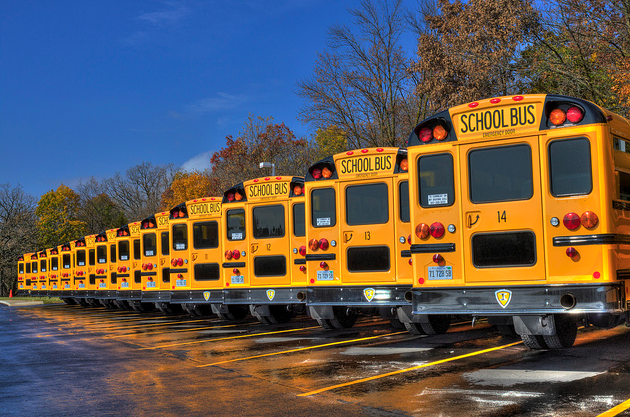
For families with children, the fall routine is now in full swing. Days in the schoolyard are getting chillier, and iconic yellow buses roam the streets around the city bringing kids to school.
However, several hundred children do not have a seat on these buses, nor can they have a place in the classroom.
“We estimate that there are about 40,000 migrants without immigration status in Montreal, several hundred of them children. But with many of them living in hiding, it’s hard to tell for sure. There are no statistics for these people,” said Judith Rouan, member of the Collectif Éducation Sans Frontières, in an exclusive interview with CUTV News.
Because they do not posses status papers, the children of undocumented migrant workers cannot access public education, unless they pay a fee of $6,000, a whopper for most families.
Immigration Canada’s delays are increasing, and status papers are taking longer to process.
Parents usually work illegally for several dollars under minimum wage in dire conditions, supporting their children who stay at home with nowhere to go until their immigration documents go through, which can take several years. These parents are often scared to enroll their child in school; worried they will ask for immigration papers and fear the risk of deportation. So while the papers are pending, what do they do?
“It’s abominable, always living in fear like that […] children cannot have a normal life, it’s a deplorable situation,” said Rouan.
Immigration documents should not be a factor in the admission of a student, said Rouan, and such laws have been implemented already in France, Spain, and in the U.S. to ensure access to education for all children, with official status or without. Here in Canada, it seems that our own laws are grossly overlooked.
The Ontario Education Act clearly states that “A person who is otherwise entitled to be admitted to a school and who is less than eighteen years of age shall not be refused admission because the person or the person’s parent or guardian is unlawfully in Canada.”
However, according to a study made by Social Planning Toronto, this law is only respected one in seven times.
What’s alarming is that, unlike our neighboring province, proof of citizenship is required in Quebec for a child to be enrolled in school.
That being said, there are no specific regulations concerning undocumented migrants; except for that impossible $6,000 tuition fee. The school commissions are trapped between the Education Ministry’s regulations, and the children’s families.
“Sometimes, they can be accommodating and accept children on condition that they show their pending papers within a year of admission … but even in some cases when the parents can afford to enroll their child in private school, there always remains the issue of the permanent code and the legitimacy of their diploma,” said Rouan.
It seems that our educational institutions have their doors shut tight when it comes to undocumented migrants with only some schools leaving the door slightly ajar in secret. With most people unaware of the situation, awareness is the key to bringing this issue to light.
Clearly, a province-wide discussion needs to be held in order to determine a possible middle ground. Undocumented migrants could perhaps attend school on small grants, paying back their tuition once their documents are sorted out. Some say this is going too far, that it isn’t taxpayers’ responsibility to fund undocumented migrants, but doesn’t every child have the right to learn? How do we as a nation achieve this delicate balance between cost effectiveness, and access to fundamental rights for all, regardless of status?
With files from CUTV.



